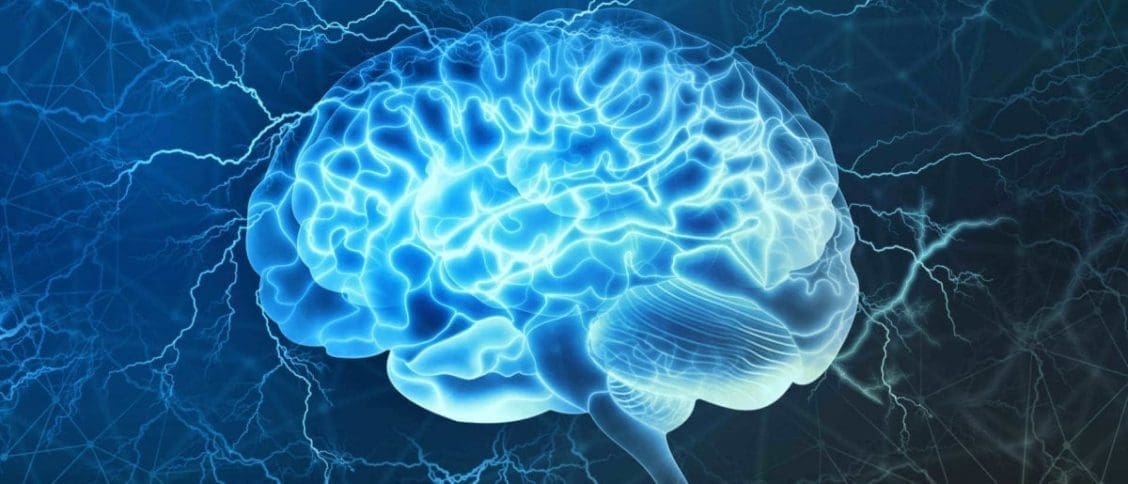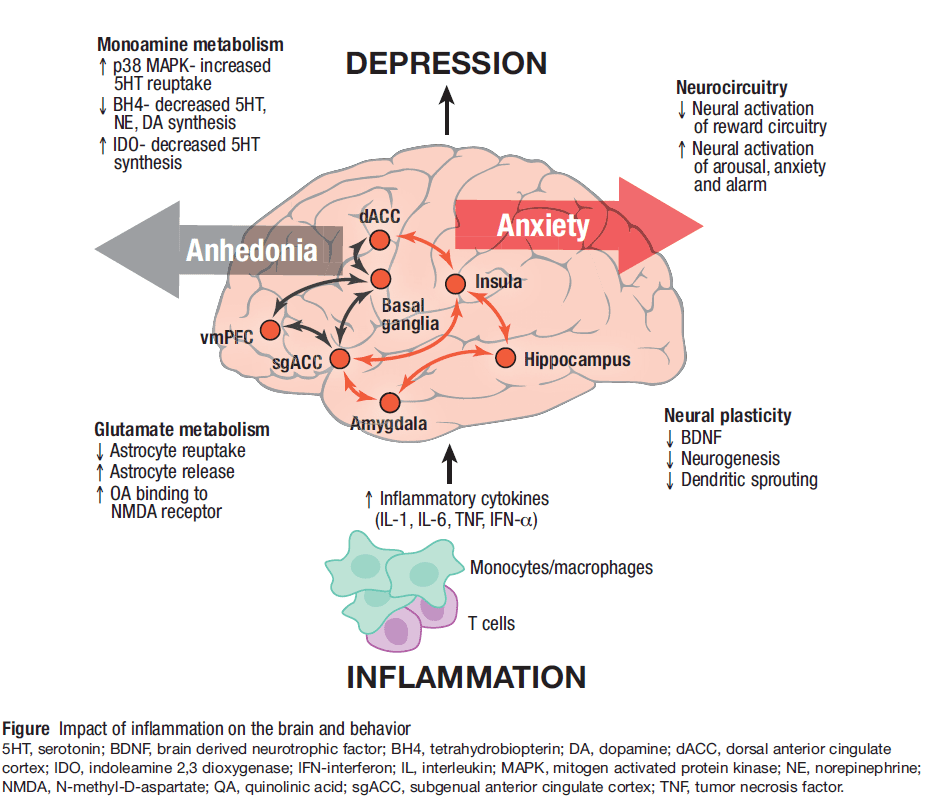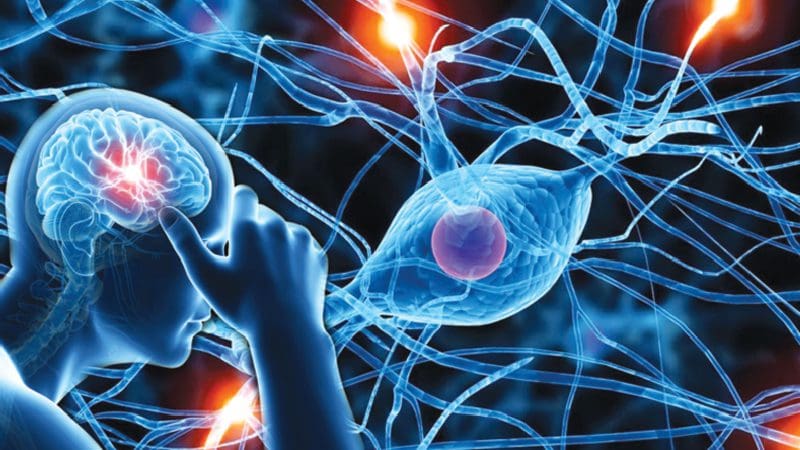
Table of Contents
Introduction
The central nervous system consists of the brain and spinal that makes sure to send neuron signals all throughout the entire body and makes sure that each organ system is doing its job properly. From the gut to the immune system and even the musculoskeletal system have a bidirectional connection to the central nervous system. When there are unwanted pathogens that start to enter the body and disrupt the signals in the brain microbiome, it’s known as a neurological disorder. In this 2 part series, we will be discussing what kind of therapeutic treatments can dampen the effects of inflammation and neurological disorders on the brain. Part 1 took a look at how neurological disorders affect the brain. By referring patients to qualified and skilled providers who specialized in neurological services. To that end, and when appropriate, we advise our patients to refer to our associated medical providers based on their examination. We find that education is the key to asking valuable questions to our providers. Dr. Alex Jimenez DC provides this information as an educational service only. Disclaimer
Can my insurance cover it? Yes, in case you are uncertain here is the link to all the insurance providers we cover. If you have any questions, please call Dr. Jimenez at 915-850-0900.
How Does Inflammation Affect Neurological Disorders?
As many articles have stated, inflammation is a 2-way component where the body’s own immune system will send out inflammatory cytokines to the intruder that is attacking the body and distinguish it out. This is beneficial when there is acute inflammation on an injury and the affected area is red, swelling, and hot to the touch. However, when there is chronic inflammation and there are no unwanted pathogens in the body, the inflammatory cytokines will attack the body causing joint pain and other chronic conditions in the body. Research studies have shown that when there is chronic inflammation in the body, it can lead to tissue damage, and when the central nervous system is being targeted due to inflammation, it’s known as neuroinflammation.
Other studies have shown that the activation of the glial cells and the synthesis of inflammation mediators are key elements of second chronic inflammation to neurological disorders in a wide spectrum. This is due to neuroinflammation in the brain and can disrupt the neuron signals that are traveling back and forth from the brain. Research has found that when there is highly destructive neuroinflammation that has been associated with the central nervous system glia can cause the blood-brain barrier permeability to break down and cause damage to the brain.
Inflammation In ADHD
In part 1, it discussed how ADHD or Attention Deficit Hyperactivity Disorder has a wide variety of symptoms that can impair cognitive function in the brain for both adults and children. Research studies have found that inflammation’s role in ADHD shows neuronal damage and degeneration, increased oxidative stress, and blood-brain barrier disruption. This is due to the above-chance comorbidity of ADHD with inflammatory and autoimmune disorders in the body. Studies also have found that early-life exposure to environmental factors may raise the risk for ADHD via an inflammatory mechanism due to prenatal exposure to inflammation and reducing the cortical gray matter volume in the brain. Even the polymorphisms in genes are associated with inflammation that has been seen in ADHD.
HCTP Therapy
HCTP (human cellular tissue products) or stem cells* have been used in regenerative cellular treatment in both international and nationally affiliated clinics and distribution organizations used to help boost the body’s natural healing process to rejuvenate organs, repair diseased tissues, and regenerate cellular structures back to their original state. HCTP has beneficial properties for individuals who are in chronic pain and as more upcoming research is discovering what HCTP can do, individuals can get their lives back pain-free.
Neurological Treatments For The Brain
As stated previously, the brain’s main function is to send out neuron signals throughout the body. Eating nutritional foods or taking supplements that promote brain health is important for the central nervous system because it needs these nutrients to function properly. By incorporating brain food and supplements as a part of therapeutic treatments for the central nervous system can dampen the effects of chronic inflammation and lower the risk of neurological disorders to rise up. Plus as an added bonus, taking supplements can even reduce other chronic issues that the individual didn’t know that they had in their bodies.
Omega-3
Research has shown that omega-3 polyunsaturated fatty acids can exhibit neuroprotective properties against inflammation while also being a potential treatment for a variety of neurodegenerative and neurological disorders like ADHD. Since ADHD has a wide spectrum of symptoms that occurs due to it being a neurodevelopmental disorder that is common in children and adults, studies have shown that omega-3s are key regulators for brain neurotransmission, neurogenesis, and neuroinflammation. With their anti-inflammatory properties, omega-3s play an important role in preventing and treating psychological and behavioral dysfunction disorders from the brain. Not only that but, omega-3s can also exhibit antioxidative effects to oxidative stress in the body.
Conclusion
All in all, incorporating ways to promote brain health is essential for a functional body. By finding ways to make small changes in the body can help it in the long run. The brain’s main job is to send neuron signals all throughout the body and vice versa. When there are unwanted pathogens that start to attach themselves to these neuron signals and travel with them to the brain, can cause neurodegenerative disorders that will affect the brain’s health. Utilizing therapeutic ways to dampen the effects of neurodegenerative disorders will give an individual a chance to get their life back and not be worried about the aftereffects of suffering from neurodegeneration.
References
Degan, Diana, et al. “The Role of Inflammation in Neurological Disorders.†Current Pharmaceutical Design, U.S. National Library of Medicine, 2018, pubmed.ncbi.nlm.nih.gov/29589534/.
Derbyshire, E. “Do Omega-3/6 Fatty Acids Have a Therapeutic Role in Children and Young People with ADHD?†Journal of Lipids, Hindawi, 30 Aug. 2017, www.ncbi.nlm.nih.gov/pmc/articles/PMC5603098/.
DiSabato, Damon J, et al. “Neuroinflammation: The Devil Is in the Details.†Journal of Neurochemistry, U.S. National Library of Medicine, Oct. 2016, www.ncbi.nlm.nih.gov/pmc/articles/PMC5025335/.
Dunn, Geoffrey A, et al. “Neuroinflammation as a Risk Factor for Attention Deficit Hyperactivity Disorder.†Pharmacology, Biochemistry, and Behavior, U.S. National Library of Medicine, 16 May 2019, pubmed.ncbi.nlm.nih.gov/31103523/.
Dyall, Simon C. “Long-Chain Omega-3 Fatty Acids and the Brain: A Review of the Independent and Shared Effects of EPA, DPA, and DHA.†Frontiers in Aging Neuroscience, Frontiers Media S.A., 21 Apr. 2015, www.ncbi.nlm.nih.gov/pmc/articles/PMC4404917/.
Leffa, Douglas Teixeira, et al. “A Review on the Role of Inflammation in Attention-Deficit/Hyperactivity Disorder.†Neuroimmunomodulation, U.S. National Library of Medicine, 6 June 2018, pubmed.ncbi.nlm.nih.gov/29874674/.
Skaper, Stephen D, et al. “An Inflammation-Centric View of Neurological Disease: Beyond the Neuron.†Frontiers in Cellular Neuroscience, Frontiers Media S.A., 21 Mar. 2018, www.ncbi.nlm.nih.gov/pmc/articles/PMC5871676/.
Disclaimer
Disclaimers
Professional Scope of Practice *
The information herein on "Neurological Treatments For The Brain | Part 2" is not intended to replace a one-on-one relationship with a qualified health care professional or licensed physician and is not medical advice. We encourage you to make healthcare decisions based on your research and partnership with a qualified healthcare professional.
Blog Information & Scope Discussions
Welcome to El Paso's wellness blog, where Dr. Alex Jimenez, DC, FNP-C, a board-certified Family Practice Nurse Practitioner (FNP-C) and Chiropractor (DC), presents insights on how our team is dedicated to holistic healing and personalized care. Our practice aligns with evidence-based treatment protocols inspired by integrative medicine principles, similar to those found on dralexjimenez.com, focusing on restoring health naturally for patients of all ages.
Our areas of chiropractic practice include Wellness & Nutrition, Chronic Pain, Personal Injury, Auto Accident Care, Work Injuries, Back Injury, Low Back Pain, Neck Pain, Migraine Headaches, Sports Injuries, Severe Sciatica, Scoliosis, Complex Herniated Discs, Fibromyalgia, Chronic Pain, Complex Injuries, Stress Management, Functional Medicine Treatments, and in-scope care protocols.
Our information scope is limited to chiropractic, musculoskeletal, physical medicine, wellness, contributing etiological viscerosomatic disturbances within clinical presentations, associated somato-visceral reflex clinical dynamics, subluxation complexes, sensitive health issues, and functional medicine articles, topics, and discussions.
We provide and present clinical collaboration with specialists from various disciplines. Each specialist is governed by their professional scope of practice and their jurisdiction of licensure. We use functional health & wellness protocols to treat and support care for the injuries or disorders of the musculoskeletal system.
Our videos, posts, topics, subjects, and insights cover clinical matters, issues, and topics that relate to and directly or indirectly support our clinical scope of practice.*
Our office has reasonably attempted to provide supportive citations and has identified the relevant research studies or studies supporting our posts. We provide copies of supporting research studies available to regulatory boards and the public upon request.
We understand that we cover matters that require an additional explanation of how they may assist in a particular care plan or treatment protocol; therefore, to discuss the subject matter above further, please feel free to ask Dr. Alex Jimenez, DC, APRN, FNP-BC, or contact us at 915-850-0900.
We are here to help you and your family.
Blessings
Dr. Alex Jimenez DC, MSACP, APRN, FNP-BC*, CCST, IFMCP, CFMP, ATN
email: coach@elpasofunctionalmedicine.com
Licensed as a Doctor of Chiropractic (DC) in Texas & New Mexico*
Texas DC License # TX5807
New Mexico DC License # NM-DC2182
Licensed as a Registered Nurse (RN*) in Texas & Multistate
Texas RN License # 1191402
ANCC FNP-BC: Board Certified Nurse Practitioner*
Compact Status: Multi-State License: Authorized to Practice in 40 States*
Graduate with Honors: ICHS: MSN-FNP (Family Nurse Practitioner Program)
Degree Granted. Master's in Family Practice MSN Diploma (Cum Laude)
Dr. Alex Jimenez, DC, APRN, FNP-BC*, CFMP, IFMCP, ATN, CCST
My Digital Business Card



